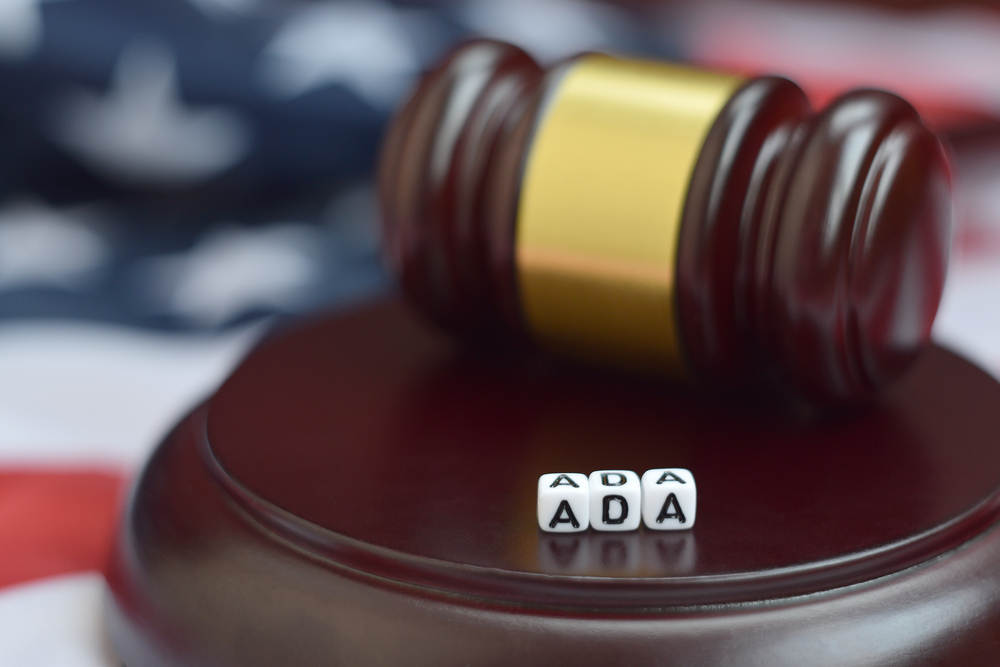 The Americans with Disabilities Act (ADA) includes many accessibility requirements for businesses and public spaces. But these requirements are often so complex and poorly communicated that business owners are unaware they’re in violation of the ADA until they find themselves facing a lawsuit. When you’re served with those papers, you might feel like you’re already out of options for fixing the issue. However, there are a few things you can do to properly handle the situation. Keep reading to learn what to do if you’re facing an ADA lawsuit.
The Americans with Disabilities Act (ADA) includes many accessibility requirements for businesses and public spaces. But these requirements are often so complex and poorly communicated that business owners are unaware they’re in violation of the ADA until they find themselves facing a lawsuit. When you’re served with those papers, you might feel like you’re already out of options for fixing the issue. However, there are a few things you can do to properly handle the situation. Keep reading to learn what to do if you’re facing an ADA lawsuit.
Fix as Much as You Can
The moment you’re made aware that you’re violating the ADA, you should take steps to fix the violation. If you address the violation as much as you can and determine whether or not it’s “readily achievable” to completely comply with the ADA. Often, taking these two steps can be enough to have an ADA lawsuit dismissed on grounds of mootness; this means that the case is dismissed because the problem has already been repaired, rendering the case moot.
What Is Readily Achievable?
What exactly does it mean for a fix to be “readily achievable” for your business? While this is obviously a vague phrase, the important thing to know is that the ADA does offer flexibility for business in some circumstances. Generally speaking, older buildings are given more leeway, as they can be more difficult to upgrade for accessibility. The ADA defines “readily achievable” as “easily accomplished and able to be carried out without much difficulty or expense.”
So, if correcting the complaint against you is going to require extensive building renovations and cost you hundreds of thousands of dollars, it might be dismissed because it is not readily achievable. However, if you simply need to add a ramp to your building, and there’s sufficient space to do so without making building alterations, you’re more likely to be required to do this as a result of your lawsuit. When determining whether or not an action is readily achievable, the courts will consider all of the following factors:
This is not an exclusive list, but the bottom line is that the impact on your business will be considered. However, the “readily achievable” exception is only available for facilities that existed before the ADA was enacted in 1993; while your business can be younger than this, the building you’re located in must predate the ADA for your case to be dismissed on these grounds.
Assess If Actual Harm Has Occurred
Under Article III of the Constitution, lawsuits must be based on an actual dispute or real harm. In the context of an ADA case, this means that someone must have actually experienced harm as a result of your business’s failure to comply with the ADA—not a hypothetical situation with potential harm. If actual harm has not occurred, and you’ve worked to repair the accessibility issue, there are no further ground to pursue the case, and it will likely be dismissed.
Taking the Case to Court
If your case does go to court instead of being dismissed, there are a few things you should know. Generally speaking, and ADA lawsuit results in an order to repair the violation. Under federal law, plaintiffs cannot recover damages for themselves in an ADA lawsuit. This means, if the case is ruled against you, you will likely only be given the order to make your business compliant, as well as possibly being required to cover attorney’s fees.
ADA litigation can often take years. This gives business owners plenty of time to repair any potential violations on their own, rather than waiting for a court order to do so. Again, if you do this while litigation is underway, the case will likely be dismissed on grounds of mootness.
If someone has filed an ADA lawsuit against you, it’s always a good idea to have an experienced ADA attorney representing you. While getting these cases dismissed is certainly possible, it’s important that you understand exactly what is required of you to minimize this lawsuit’s impact on your business’s finances, operations, and reputation. Contact The Harr Law Firm today to schedule a consultation with one of our attorneys today, and we’ll discuss how we can help you with your ADA case.